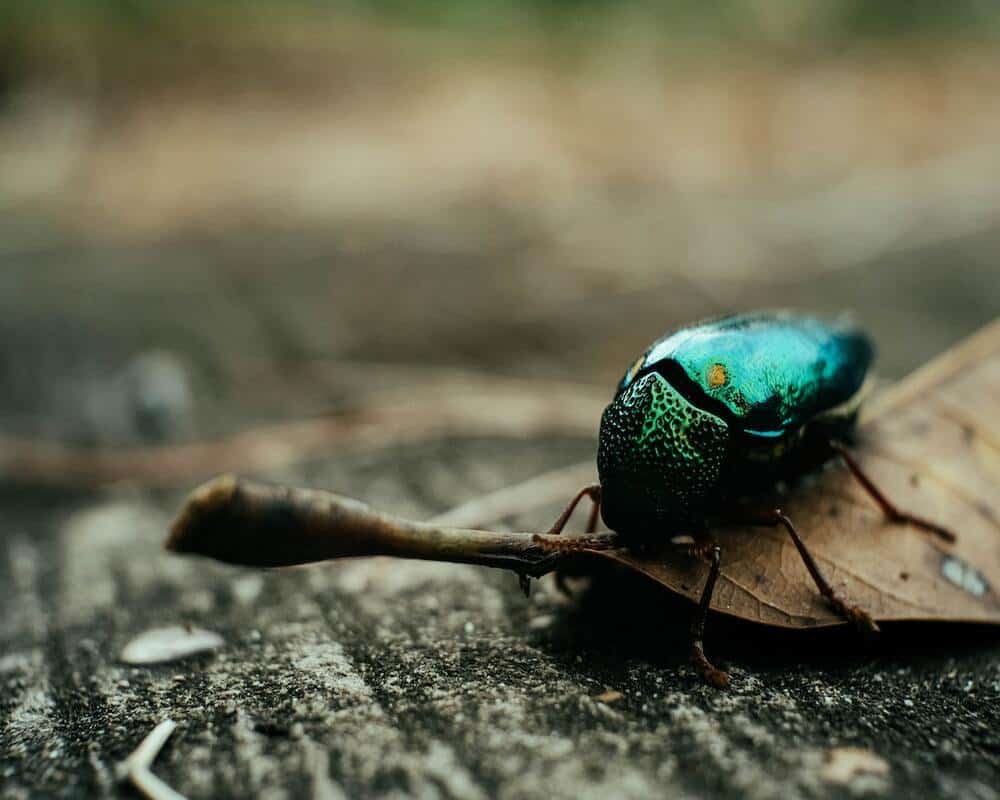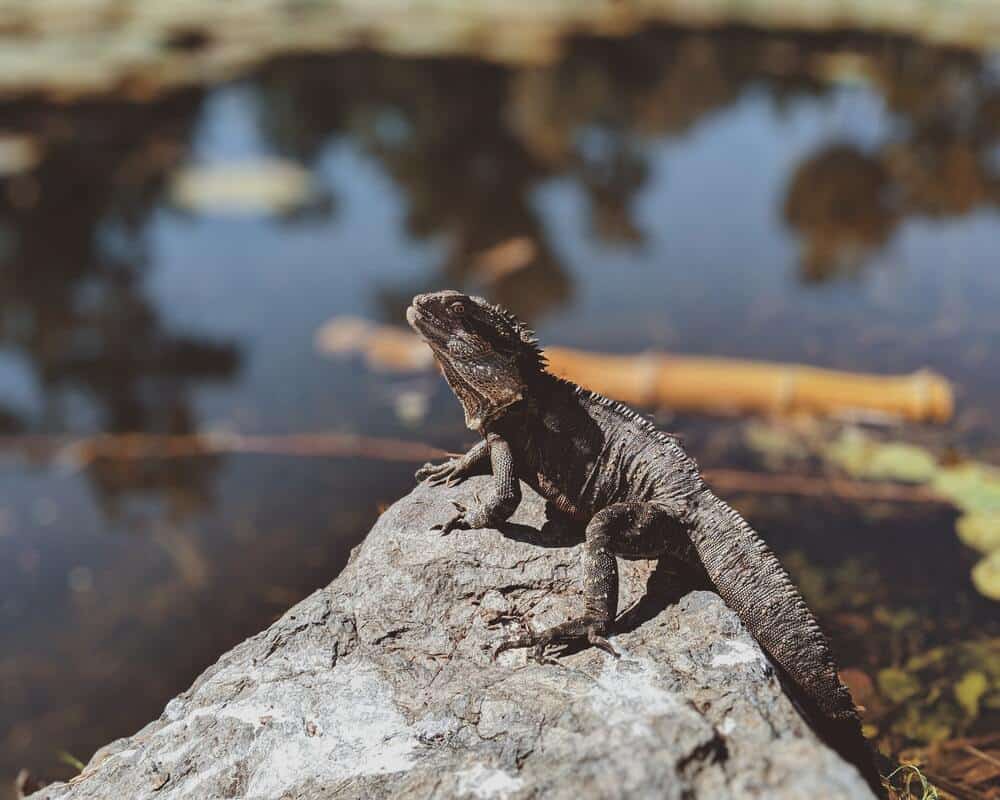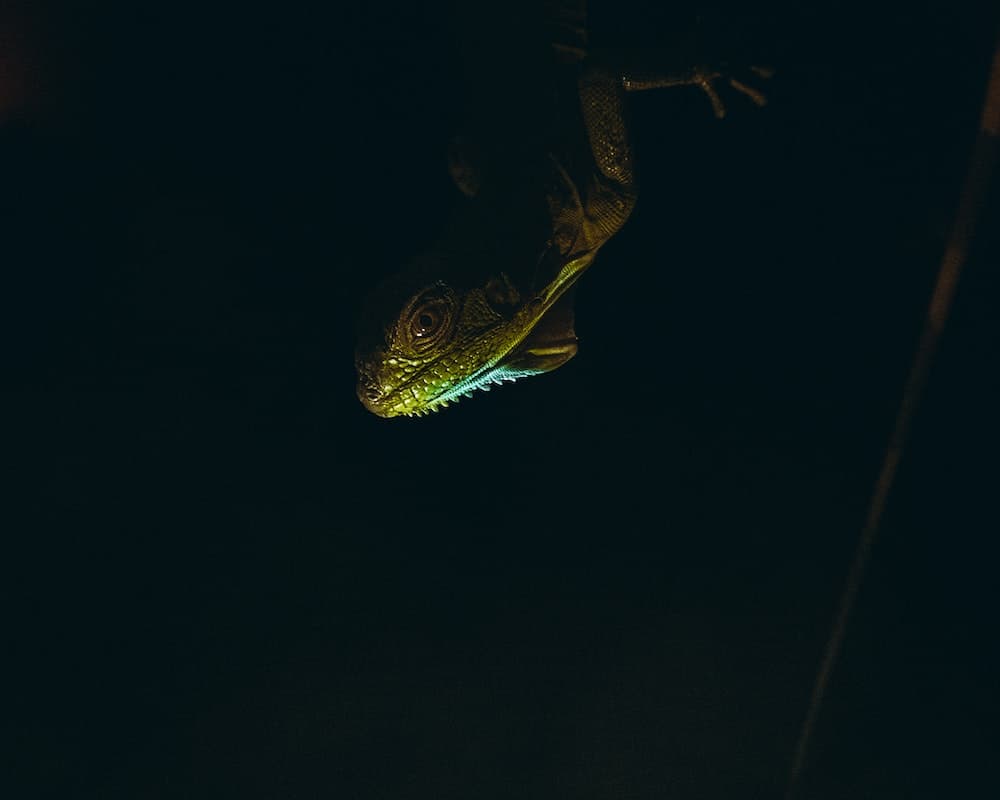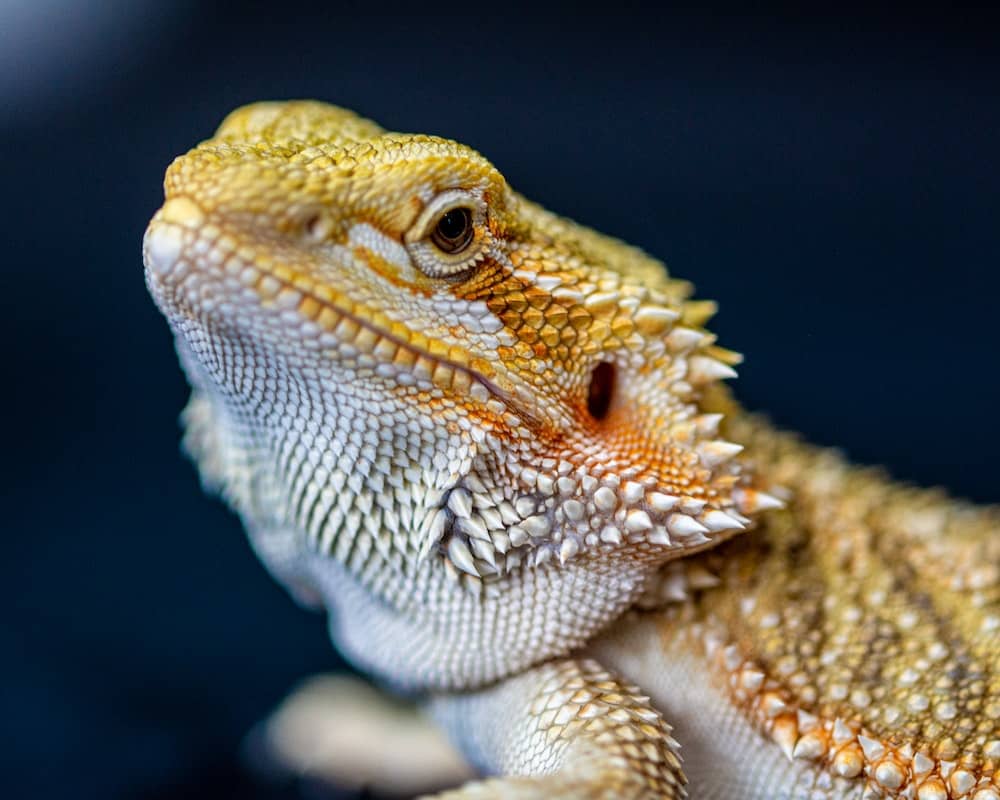Yes, bearded dragons can eat some species of beetles. There are around four hundred thousand types of beetles, and not all can be used as feed for them. Out of the four hundred types of beetles, only some kinds are used as food for bearded dragons.
- Can You Feed Beetles to Your Bearded Dragon?
- What Are the Types of Insects I Can Feed My Bearded Dragon?
- What Are the Nutritional Benefits of These Insects?
- Can Feeding Your Beardie These Insects Cause Any Harm?
- Feeding Frequency
- Should The Insects Be Fed Alive or Dead?
- Can Young Bearded Dragons Eat These Insects Too?
- FAQs
Can You Feed Beetles to Your Bearded Dragon?
These insects are one of the main sources of protein for beardies. They are, therefore, a common dietary choice for beardies along with other choices of insects.
Along with a healthy diet of fresh leafy greens and a select choice of fruits, it is also recommended to include gut-loaded insects in your pet’s diet.
Some types of insects are nutritious for your pet and provide essential nutrients like protein, fats, and fiber to your pet.
Using these insects in the diet, however, depends on many factors, including the age of your pet, the type of insects used, and the number fed.
Remember, it’s important to keep your bearded dragon hydrated!
What Are the Types of Insects I Can Feed My Bearded Dragon?
Darkling beetles are commonly used to feed beardies.
However, it is important to understand that the darkling beetle is a common name for all species belonging to the beetle family, Tenebrionidae. There are around twenty thousand different species belonging to this family. Only some of them are edible.
The following are the two most common species used to feed beardies:
- Mealworm Beetle
Mealworms are the larvae of Mealworm beetles. Mealworm beetles, also known as Tenebrio Molitor, can grow up to 2.5 cm. The fully grown adult beetle can grow up to 1.8 cm. Mealworms are yellowish in color.
- Superworm Beetle
The binomial name for superworm beetles is Zophobas morio. Their larval forms are commonly known as, superworm, king worm, and morio worm. The larvae can grow up to a maximum length of approximately 5.7 cm. The adult beetle grows around the same size as an adult mealworm beetle.
Fully grown superworms are similar to mealworms except that their tail parts are dark and blackish.
What Are the Nutritional Benefits of These Insects?
These insects used for feeding beardies have limited nutritional value. However, it is not the case that it is entirely pointless or a waste to feed them. They do contain some nutritional value which they can be used to feed beardies.
Here is some information about the nutritive value:
- High Protein Content
Both mealworm beetles and superworm beetles contain high amounts of protein. They are a good source of protein for your pet.
- Low Sodium Level
The darkling beetles contain low sodium levels. In case your beardie has a high blood pressure problem or a heart problem, then darkling beetles are suitable for them.
- High in Fiber
Being high in fiber, both in the larvae form and the insect form, darkling beetles are good and a rich source of fiber. Good fiber in the diet ensures that your beardie does not suffer from constipation.
- Nutrition Through Gut Loading
Along with this, you can gut load both superworm and mealworm beetles and ensure that your beardie gets the missing nutrients through them. Gut-loading them before feeding them to bearded dragons is a common practice for providing good nutrition to bearded dragons.
Some of the things you can use to gut load them are vegetables, fruits, and oats.
Beardies also find it interesting to have a variety of dietary options like insects in their diet. If they are not offered a varied diet that includes insects, they may lose interest in eating and may enter brumation.
Can Feeding Your Beardie These Insects Cause Any Harm?
There are certain disadvantages for each type of darkling beetle.
- High Fat Content
Both mealworm beetles and Superworm beetles, especially in their larval form, have a high fat content. Consumption of too many insects too often can cause complexities like obesity in your pet.
- High Phosphorus Level
Along with this, mealworms have high phosphorus levels. If the level of phosphorus is not in proportion to the calcium levels the darkling beetles provide, then it is not safe for your beardie to consume too many of them.
Alternatively, calcium supplements can be provided to your pet to maintain the ratio of phosphorus to calcium, while feeding them insects.
- Difficulty in Digestion
A risk regarding superworm beetles in their larval form is that they bite as a form of self-defense.
Similarly, mealworm beetles defend themselves if they sense a threat. However, their self-defense is a tough exterior, which your pet can find hard to chew and eventually digest.
- Health Issues
Excessive intake of mealworm beetles can cause heart and liver problems in your pet. It can also cause chitin buildup in your bearded dragon’s gut. Too much chitin in the gut can cause digestive problems like intestinal impaction.
It is important to note not to leave any insects in the pet enclosure as insects have a tendency to bite when threatened and may end up biting your bearded dragon.
Feeding Frequency
Knowing the limited nutritional value of darkling beetles, and the health risks associated with giving too many insects, it is advisable to not include them in your adult bearded dragon’s diet too often.
You can give a beardie a small amount once every week. Five – six mealworm beetles are sufficient for a fully-grown beardie.
Should The Insects Be Fed Alive or Dead?
It is recommended to feed live insects to your beardie.
- Dead insects offer very little nutritious value. Frozen or canned darkling beetles in either the larvae form or the insect form is devoid of the right essential nutrients.
- The live insects also challenge the natural hunting skills of your beardie.
- It is also possible to gut-load live beetles and provide your beardie with some additional nutritional supplements. However, make sure you provide them with store-bought beetles which are then gut-fed.
- Avoid feeding insects from your garden or other areas as they could be poisonous or may contain harmful pesticides or chemicals inside them, which can eventually harm your pet.
Can Young Bearded Dragons Eat These Insects Too?
It is advisable not to give a young beardie fully grown beetles. The hard exoskeleton of a fully grown beetle makes it difficult for the young beardie to chew and digest.
Along with this, young beardies are prone to chitin buildup in their guts from too many insects which can cause intestinal impaction and affect their overall health.
Young bearded dragons tend to eat more insects rather than vegetables and fruits. So, a healthy portion of mealworms should be provided to younger bearded dragons.
Once they are in the age range of five to eighteen months, they can be introduced to a darkling beetle every once in a while. After eighteen months of age, a beardie is considered a fully grown adult. This is when they can be given darkling beetles once every week.
FAQs
Will My Bearded Dragon Eat Darkling Beetles?
Darkling beetles have a tough exoskeleton. Adult beardies are capable of eating darkling beetles as long as the darkling beetles are not too big. It is easier to feed high-fat content mealworm or super worm beetles to the younger bearded dragons.
The younger bearded dragons thrive more on insect food rather than vegetables and fruits. Adults on the contrary can eat a comparatively huge produce of fruits and vegetables.
How to Gut Load Mealworm and SuperWorm Beetles?
You can gut load the mealworm and superworm beetles by doing the following:
- Place a container with food such as premixed food, leafy greens, and vegetables in a container.
- Make sure the food has high water content as beetles do not directly drink water.
- Then, put the worms in the food container and give them approximately 48 hours to consume as much food as they can.
- Once done, you can remove the beetle worms from the container and provide them to your pet for immediate consumption.
- You can supplement the food in the container with powdered vitamin and calcium supplements.
- Do not provide water directly to the darkling beetles as it can cause a negative impact.




